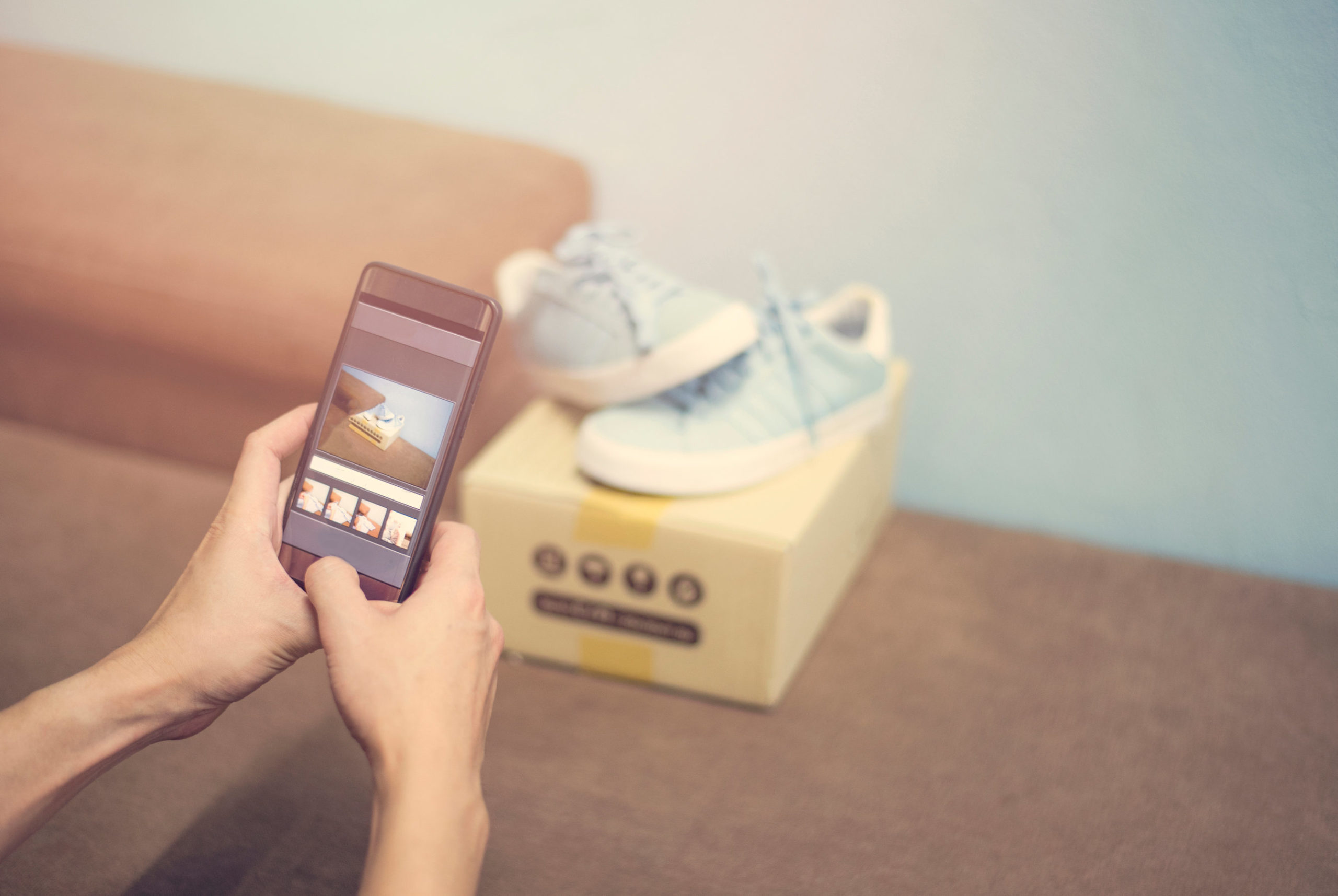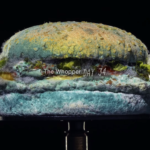What’s the future of branding and packaging after the 10th edition of the World Branding Awards?
After hosting the 10th edition of the World Branding Awards in November last year, we got to thinking about what makes a brand relevant to the regular consumer on a daily basis. Some of the top brands in various categories came together to celebrate the biggest branding accolade in the world, which only meant that they were doing something right in their branding. For to be a winner, a brand would need to be voted on by a majority of consumers and be the top of their class. How then can a brand make itself loved by a whole country, or region, or even the whole world, especially when most people are increasingly reliant on technology?
In a recent interview, Robert Lockyer, CEO at Delta Global, a packaging supplier to brands such as Radley and Tom Ford, shared and discussed how on pack a brand must make itself recognisable and have an impact within imagery shared on platforms such as Instagram.
With the world tied to their screens, social media has fast become the foundation for modern communication. Brand presence via Instagram, Facebook and Twitter is now a necessity rather than a choice, therefore a brand’s packaging must matter as much as the product inside.
Once upon a time packaging was only viewed by the end-customer and was simply about protective functionality. But as buyers continually look to social media to influence their purchasing decisions, and more of us photograph our experiences on a daily basis, social media has the potential to open up brands to millions of viewers every day.
In fact, 60 percent of Instagram users alone claim they have discovered at least one new product on the platform.
Robert indicated that packaging is about bringing your brand to life in a recognisable way, saying that photogenic, experiential and connected packaging is now a must for brands. And, he discussed why social-ready packaging should be a priority in retail.
Make your messaging and design memorable

Aligning your brand messaging with the materials and colouring you use is important. Bold and minimal designs efficiently communicate your brand message as they are easy to read and make the most impact.
Social media is fast-paced, filled to the brim with content. There’s a lack of viewing time and brands are fighting to stand out as people scroll down their feeds. Whether it is logo, font or colour, brands need to clearly mark themselves.
Luxury brands such as Gucci make a statement with their double and mirrored ‘GG’ emblem while Tiffany & Co. are acclaimed for their turquoise branding. In fact, the company have just opened Europe’s first ‘Blue Box’ café and taxis in Harrods, Knightsbridge. The immersive and striking interior radiates luxury and creates the illusion that you are dining inside one of the brand’s famed jewellery boxes.
Though it does not feature in every post the slogan, ‘Because You’re Worth It’ is an internationally recognised catchphrase coined by Parisian beauty brand L’Oréal. It is a thoughtful celebration of women and is still associated with their products today. In a recent Valentine’s Day campaign, their Rogue Signature lip stain featured a ‘Worth It’ heart in the image.
“If you were to remove the brand name from the products of these retailers, an audience would still know who they were from these other recognisable elements. Brands need to look at clever ways they can do this throughout their packaging so that no matter who ‘posts’ their brand on social media they will be a familiar face for customers,” said Robert.
In the FMCG sector, using a large impactful orange peel font, McVities Jaffa Cakes implemented an iconic image onto their packs of the ‘full moon, half moon, total eclipse’ ways to eat a Jaffa Cake. It stemmed from a 90s TV advert that mimicked the solar eclipse and the brand now use it as a visual communication tool which has an emotional connection with the customer as people reflect on what personality trait they are within the four Jaffa Cake eating styles.
“It is a repetitive strategy that means for years people have associated their brand with the entertaining image and fun messaging on the box, it encourages people to re-enact the eating styles in photos on social media.”
Customers are marketeers – so give them an experience
User-generated content is authentic and resonates with users as it is created by someone other than the brand – not to mention it saves you time and money as your customer becomes the marketeer.
“Packaging must have a ‘wow’ factor in order to entice the user to photograph or video it. Building anticipation and excitement around the opening of the gift or product is as important for the customer as the product inside.”
Unboxing videos for instance have taken the internet by storm and they collect millions of views every day. YouTube, Snapchat and Instagram Stories, in particular, have become real-time platforms that will showcase these experiences to huge audiences. There is just something enchanting about opening a beautiful package and discovering its contents that makes people want to share that moment with others.
People trust other people and social media creates an efficient electronic word-of-mouth marketing platform as well as natural endorsement which seems true to life – unlike an ad.
Using social handles can increase your virality
Brands must encourage the customer to follow, share and interact with them on their own social media. By cleverly adding hashtags and handles to your packaging you create a call to action that makes you instantly findable. And people can make a new purchase via your shoppable feed if you take them directly to it.
If a package is personalised, it is also more sharable because it becomes part of the customer’s own brand. Customising the experience on a pack makes the receiver feel special, like they are part of your entity – you just have to look at Coca-Cola’s hugely successful ‘Share a Coke’ campaign, where people literally went to the shop just to find, buy and share their ‘personalised’ coke.
Create smart or connected packaging
With consumers spending over three hours a day on their mobile devices and the eCommerce sector soaring, packaging must stay digitally connected and encourage return to the brand online.
Tapping into the social media culture and persona of their customers, Japanese skincare brand Skin Aqua reversed the information on their packaging, so that it read the correct way around when shoppers took a selfie.
More recently, L’Oreal teamed up with ModiFace an augmented reality beauty app which allowed consumers to ‘try before you buy’ their makeup through the phone’s front-facing camera. Telling their customers about the app through their packaging helped them to retain and gain new customers.
There are many ways brands are ensuring their packaging is ‘connected’. Scannable QR codes, for instance, can offer a whole host of traceability and interactive elements. It widens the ability of the pack allowing consumers to easily access product quality information, re-order items, watch videos, read advice, participate in competitions and even receive personalised communication and customer service.
The influencer and ambassador effect
Do not just imagine your packaging in the hands of customers, but the hands of paid-for marketing professionals. Social platforms are the hub of the influencer community. Paid to feature in sponsored feeds, run product placements on their own channels and become endorsers and ambassadors; they create highly curated content for the brands they work with.
MatchesFashion’s eco-friendly staple marble effect packaging is so beautiful and reusable that Instagrammers and Pinterest users desire it to be part of their styling shots. Interior design influencers, for instance, are reusing the packaging to style their shelves and desks, as storage facilities and as a background in various other lifestyle flat lays.
“The knock-on effect of packaging for a socially driven generation is that you become stylish, your brand becomes intentionally included in every photo. It gives the consumer a feeling of exclusivity and bring your brand to the masses,” added Robert.
“Raising brand awareness and generating new customers is just one benefit to the added value of social media-based packaging. It can also prove a vital research method, brands can learn about their customers social media and buying habits and it can tailor how you present your products in the future.”



Average Rating